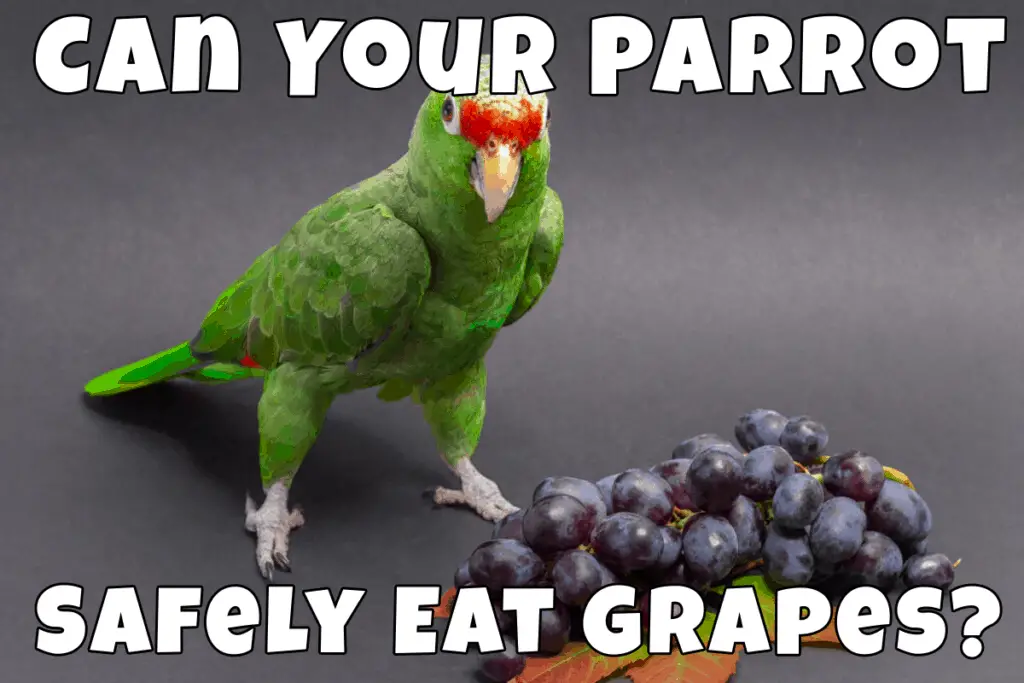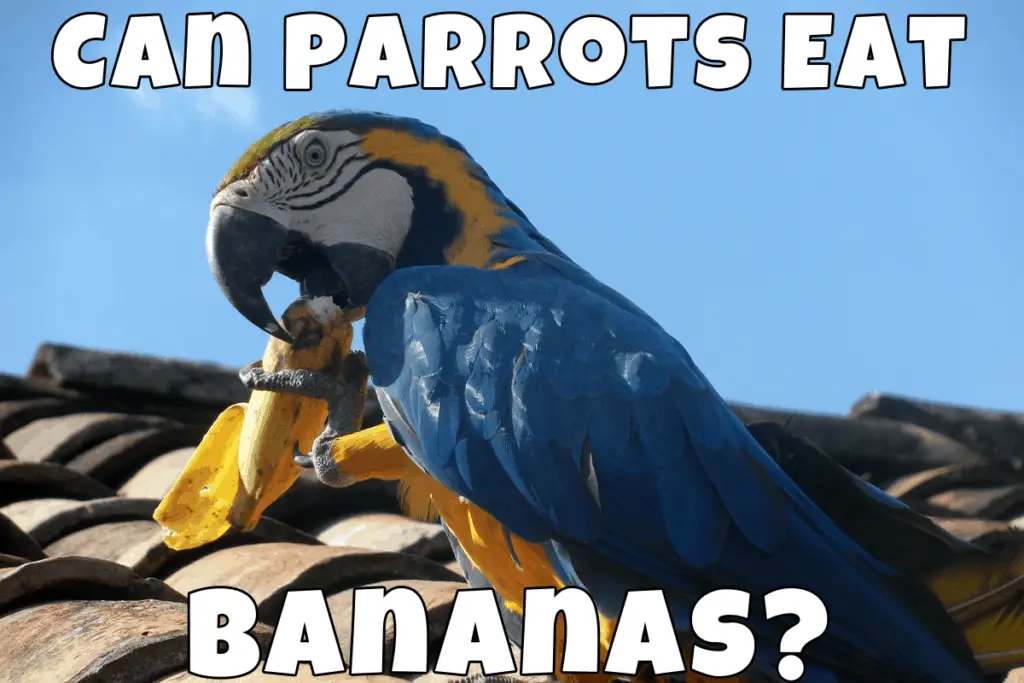In the previous article, we’ve discussed watermelons and found out that they are safe and useful for parrots. I don’t know about you, but my logic connects a cantaloupe as the next step. The association is close for me. How about you? Do you want to find out whether your parrot can eat cantaloupe or not? Let’s check it out here!
Yes! Yes! Yes! Your parrot can eat cantaloupe (and it will like the teste!) but only in small amounts. Generally, it contains more sugar than watermelon and can cause obesity if overeaten. Besides, you can feed your bird cantaloupe seeds as well! Some birds like them even better than the fruit!
Overall, parrot owners know that fruit is a tricky treat, so to say. The birds like them, and they are beneficial, but too much can be worse than too little.
Thus, I suggest we take a closer look at cantaloupe’s benefits and negative sides.
Are There Benefits of Cantaloupe for Parrots?
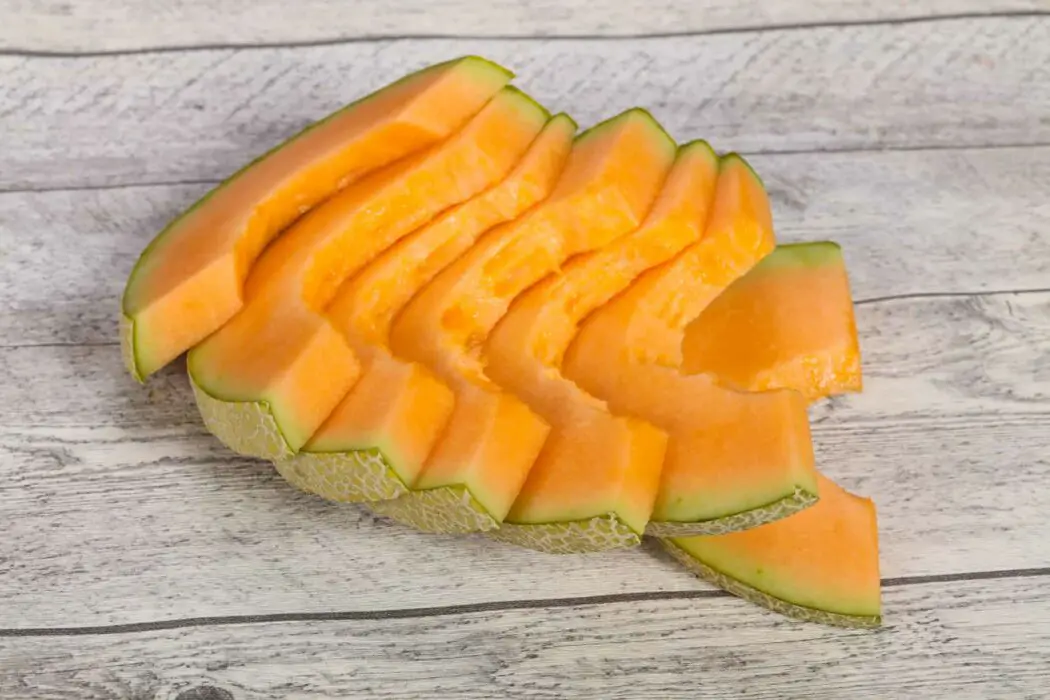
Cantaloupe is definitely a beneficial fruit, both for humans and parrots. It’s packed with all kinds of valuable vitamins. Each of them works its own magic on the bird’s body.
Cantaloupe contains the following vitamins that bring positive effects on parrot’s body:
- Vitamin C: this is a huge immune booster that keeps the whole system healthy and working perfectly. Regularly including foods rich in vitamin C means protecting your pet from a variety of colds and other illnesses.
- Vitamin A: As mentioned in other articles, vitamin A is essential for parrots due to its high impact on a bird’s feathers’ health. Parrots need it first and foremost. Plus, it affects the condition of their skin, digestion, vision, and cardiovascular system, which are no less critical than the plumage.
- Vitamin E: relatively rare vitamin for summer fruits! Vitamin E gives parrot bursts of energy and boosts a healthy appetite. Plus, vitamin E is very important for mating couples and pregnant females as it plays an essential role in nurturing n offspring.
Can Parrots Safely Eat Pineapple?
Fiber and pectin also contained in cantaloupe positively affect the digestion system. Considering parrots’ huge vulnerability to everything concerning digestion, I’d say it’s an important factor.
How Can Parrots Eat Cantaloupe Safely?
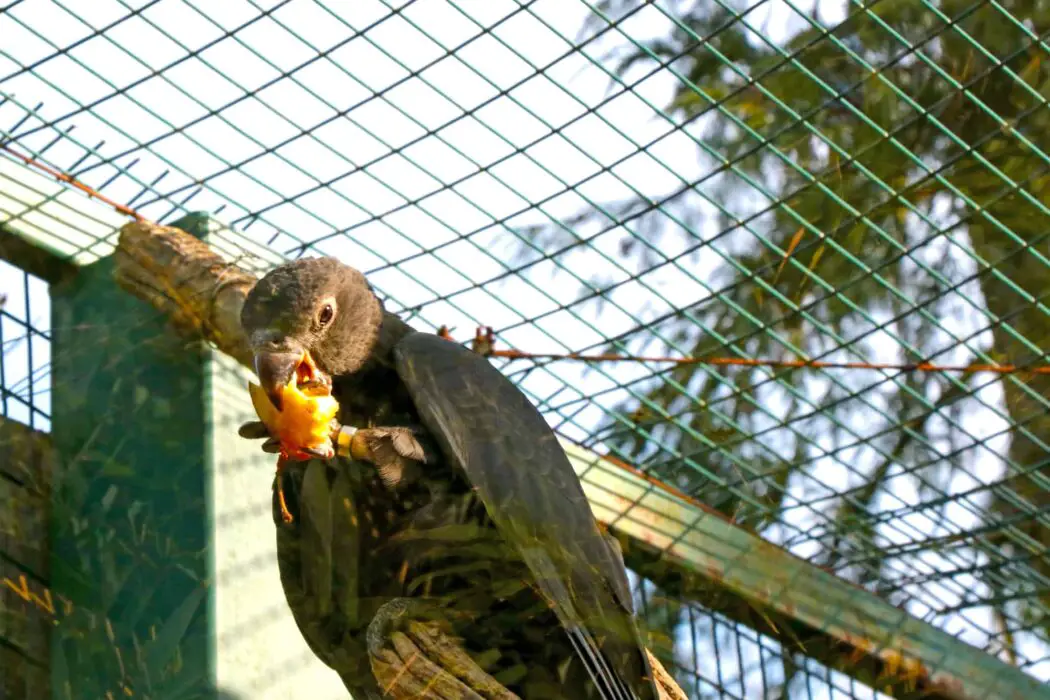
Remember my article about watermelon?? The principle s basically the same! You just need to cut the fruit into small cubes and give them to your bird. Also, you can prepare a fruit bowl with this delicacy! Just make sure that different fruit cubes are approximately the same size and suitable for your bird’s beak. E.g., an African Grey can eat and enjoy cubes twice as big as a parakeet would. All in all, you just have to make sure they are the right size for your pet.
Be careful if your pet is obese or has diabetes. In this case, it’s better to consult a veterinarian for the foods you can give your parrot. And I suspect most fruits will not be a part of it.
If your parrot has no food-related restrictions, I suggest you tie the fruit to the cage, so the bird has a mental and physical stimulus to peck it and enjoy!
Do Parakeets Eat Watermelon? Is It Safe?
How Much Cantaloupe Is Safe for Parrots?
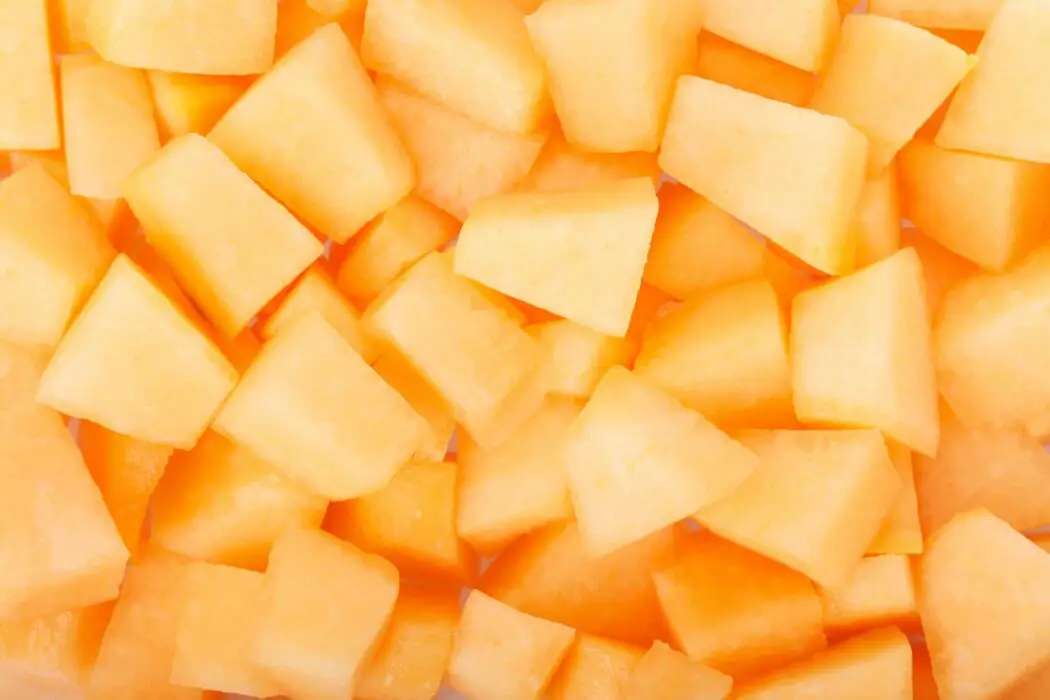
Even if your bird has no health-related issues, cantaloupe isn’t the fruit to enjoy all day long! You have to restrict such sweet treats to when your parrot really needs them. As with all fruits, too much of it is damaging to your pet.
Thus, it really should b a treat instead of the main course. But how much fruit can parrots eat? Remember, vets suggest no more than 20% of fruit in a parrot’s diet. From personal experience, I’m limiting the amount even more.
Remember, give your parrot cantaloupe treats no more than a couple of times a week in small quantities.
Parrots in captivity burn way less energy than in the wild. And fruits are high in calories. Thus, you have to limit their amount in your parrot’s diet. Better focus on greens and vegetables. They are meant to constitute around 30% of a parrot’s diet. Specialized parrot pellets should take the bigger part of it. Buy only high-quality pellets. You can check an article on the best pellets of 2021 here. At the end of this year, I’ll make a follow-up.
Remember that the full responsibility of a parrot’s health lies solely on you. And
Can Parrots Eat Cantaloupe Seeds and Other Types of Melon?
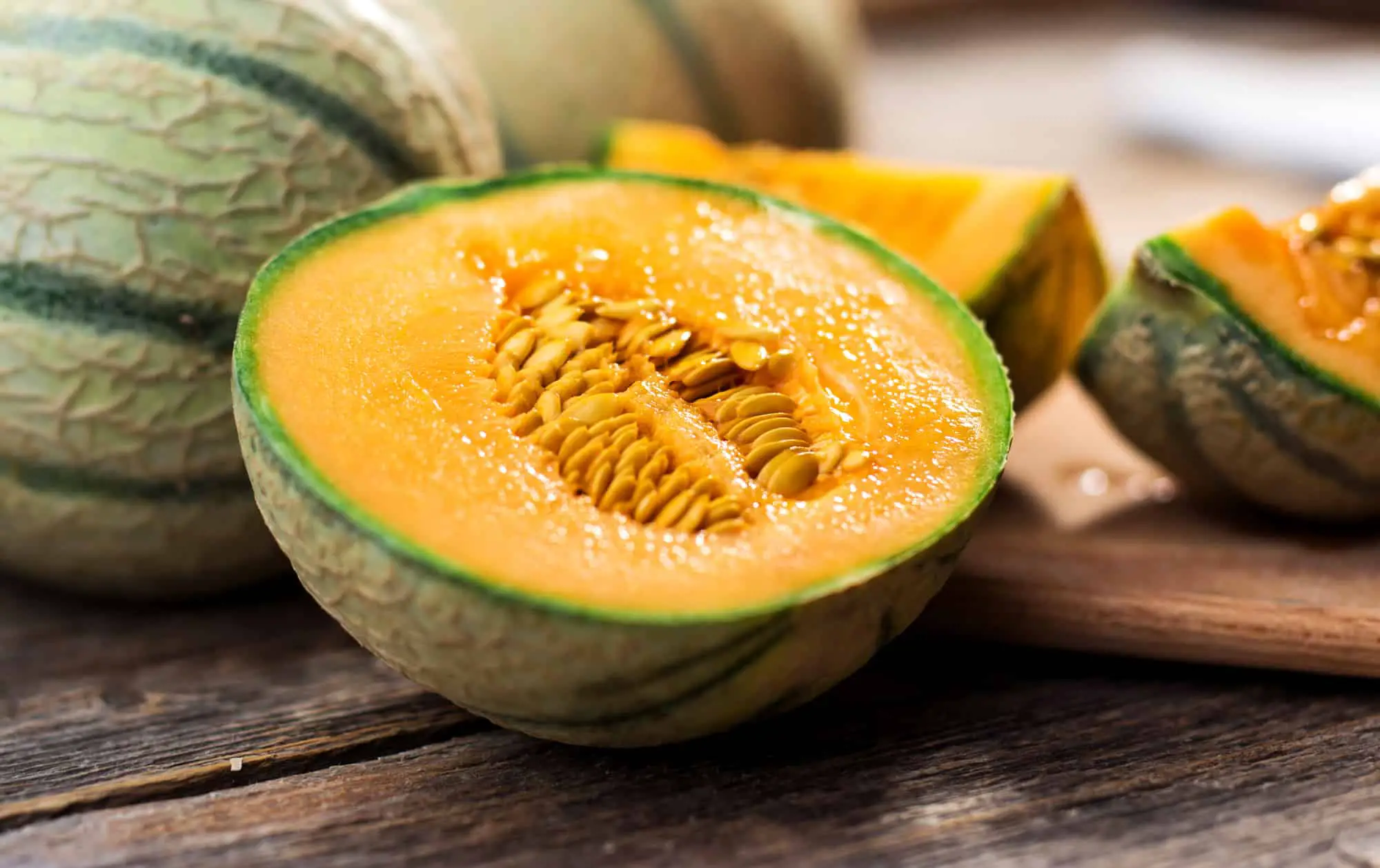
The answer is YES to both questions. Parrots can and should eat melon seeds for additional nutrition. Just like other types of seeds! Remember that seeds are a wholesome snack but high in calories as well. So remember to treat them as, well, treats! They should come up to around 5-10% of a parrot’s diet. You can make a mix of various kinds of seeds and even add nuts to make a tasty snack bowl.
As for the other types of melon, rest assured that they are entirely safe. Can a quaker eat melon? Surely. As with other types of parrots. Melons offer roughly the same set of vitamins and macroelements. Thus, all of them are tasty and useful.
All in all, your parrot would be delighted to eat cantaloupe once in a while. Parrots like the sweet taste of the fruit, and you’ll like the benefits it brings alongside. Overall, cantaloupe shouldn’t harm your pet. Unless it’s an individual issue or a pesticide disaster. Thus, next time when shopping, pay attention to cantaloupe as a tasty treat both for yourself and your pet!

